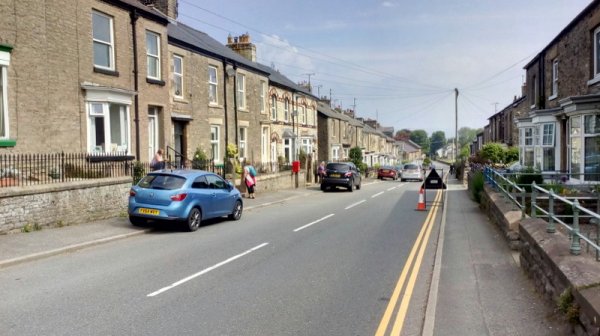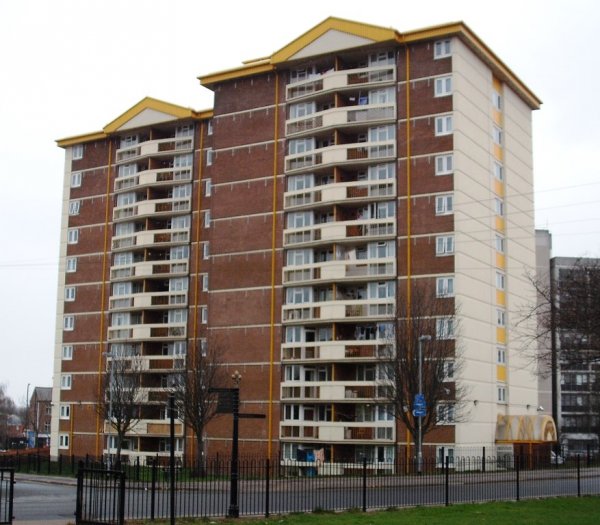Mar 31st 2023, 14:14
Blog - 31st March 2023
In this blog I consider the Welfare system in Britain; Guaranteed Basic Income; Street and footway lights in Cumbria; Housing Association Finance; and webinars.
Winston Churchill once said that there should be a ladder for aspirational people to climb and a safety net for those who fall off – but the safety net has now been lowered too near to the floor.
If I was designing a welfare system I would start by calculating what people would need for a basic minimum standard of living – what they would need to pay for rent, utilities, food and other essentials – and benefits would be based on that calculation. If the cost of these things went up, then so would the benefits. This would create a transparent system where benefit recipients would get what they needed.
But the welfare system doesn’t work like this. Levels of pensions and benefits are set by ministers plucking figures out of the air that bear no relation to what people need to spend to live. And it’s now clear that these amounts fall far short of what is needed.
The Joseph Rowntree Foundation and the Trussell Trust calculate that a single person needs a minimum of £120 a week in addition to their rent. This includes food (£37), energy (£35), travel (£16), utilities (£20) and sundries (£23). A couple would need £195. They describe this as ‘the more stringent and conservative end of the spectrum’. These figures are modelled partly on official data that tracks what low-income households actually spend, and has been reality-checked with benefit claimant focus groups.
The basic rate of universal credit will be £85 a week for a single adult even after April’s increase. The charities say that social security benefits have become so eroded in recent years that they no longer provide a realistic or secure safety net.
In 2020/21, 13.4million people in Britain were living in poverty. Of these, 7.9million were working age adults, 3.9million were children and 1.7million were pensioners. Numbers have increased since then, not least because of the cost of living crisis. In October 2022, the Joseph Rowntree Foundation reported that 60% of low income households could not afford an unexpected expense, over half were in rent arrears, a quarter use credit to pay essential bills, 70% are going without essentials, half have reduced spending on food for adults, 40% of families are spending less on food for children and 60% are heating their homes less.
This poverty is caused by government policy. The welfare system should not be failing on this scale in a developed country like Britain. Radical reform is needed and I would suggest that we start by basing universal credit, old age pensions and other benefits on properly costed packages of spending that represent the minimum that people need to live on.
Even better, a scheme called ‘Guaranteed Basic Income’ could be introduced. This would guarantee all citizens and families an income that is enough to live on, as long as eligibility criteria are met. It is a targeted payment system directed at those on the lowest incomes with the aim of abolishing deep poverty – and it could do this within a decade. It would be a radical policy for advancing social justice and combating economic inequality. It could be combined with abolishing the benefit sanctions attached to Universal Credit.
It would also be possible to end the need for claimants to opt-in to receive payments. Ending the need to opt-in to the system would minimise the risk of social stigma towards claimants and reduce the need for government bureaucracy. Claimants could be automatically enrolled into receiving Guaranteed Basic Income by linking it to the tax system that already administers levels of taxation based on earnings. In this sense, Guaranteed Basic Income would become a form of Negative Income Tax.
Many communities, including Kirkby Stephen where I live, have trouble with street and footway lights. Some streets and footways have lighting while others do not. Some lights work while others do not. No one seems to know who is responsible for maintaining them. If a light stops working it seems surprisingly difficult to do anything about it. A recent survey found that 42% of residents were dis-satisfied with the street and footway lights in the town. And this is a serious problem. Dark streets are not only inconvenient, they can be dangerous.
Cumbria County Council can provide road lighting on adopted roads and footpaths. They usually provide linked lights with tall columns. They maintain roadway lighting and footway lighting on the main roads in places like Penrith, Appleby and Kirkby Stephen. They also maintain the footway lighting on most new or recently built housing developments.
District Councils, and Town / Parish Councils can provide footway lighting. These systems tend to use lower columns with much greater spacing between them. Footway lighting can also be installed on unadopted roads and footpaths. Eden District Council provides the footway lighting for villages in Eden; a few footway lights in Penrith, Appleby and Kirkby Stephen; lighting in their car parks and on their land. In 2017 they decided to reduce costs by stopping providing footway lighting, but they offered to devolve the service to town and parish councils. Since then, they have transferred 536 footway lights to 38 town and parish councils.

The A685 (South Road) in Kirkby Stephen that is served by often dysfunctional footway lights.
In Kirkby Stephen, the County Council owns the road lighting on the A685 in the north and centre of the town, but not south of the Zebra Crossing at Brougham Lane. The lighting on the A685 southwards on the High Street and South Road was originally owned by Eden District Council. The legal terms ‘road’ and ‘footway’ are misleading as road lighting can be installed on footpaths and footway lighting can, and often is, installed on roads. In this case, footway lighting has been installed on a trunk road.
53 footway lights were transferred to Kirkby Stephen Town Council. They were to be renewed by Eden District Council with LED fittings and in some cases hinged poles but this hasn’t always happened. In 2018 Eden District Council commissioned Aptus to upgrade the ‘agreed’ Footway Lights to LEDs; while Electricity North West were instructed to provide disconnections and connections. Urbaser now provides the basic maintenance element and NPower provides the electricity supply. Eden District Council instructs the contractor to maintain the footway lights when they are notified of a problem and recharges the cost to Kirkby Stephen Town Council. There are other footway lights that the town council has not agreed to take over and these remain the responsibility of the district council that plans, in the long-term, to remove them.
It appears to me that Cumbria County Council, the district councils and the town / parish councils have created complex and dysfunctional relationships between themselves and their contractors that have made a basically simple service difficult to manage. I hope that the new Westmorland & Furness Council that takes over from Cumbria County Council and the districts, will work with the town and parish councils to create a simple and effective way of providing and managing street and footway lights.

Flats in Kirkgate, Wakefield, owned by Wakefield & District Housing
Since I last posted a blog I have published two briefing papers. To view or download your copies, please click on the following links:
During April I will be presenting some webinars. For further information or to make a booking, please click on the following links: